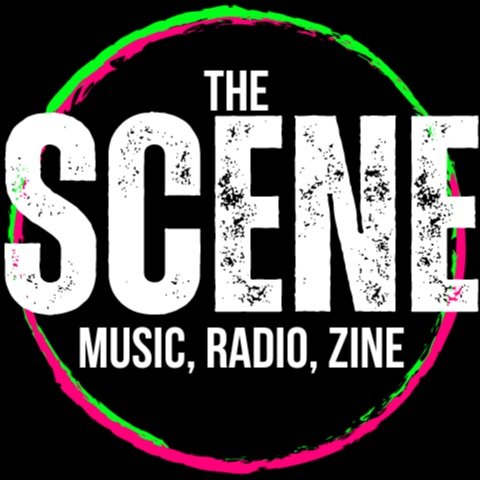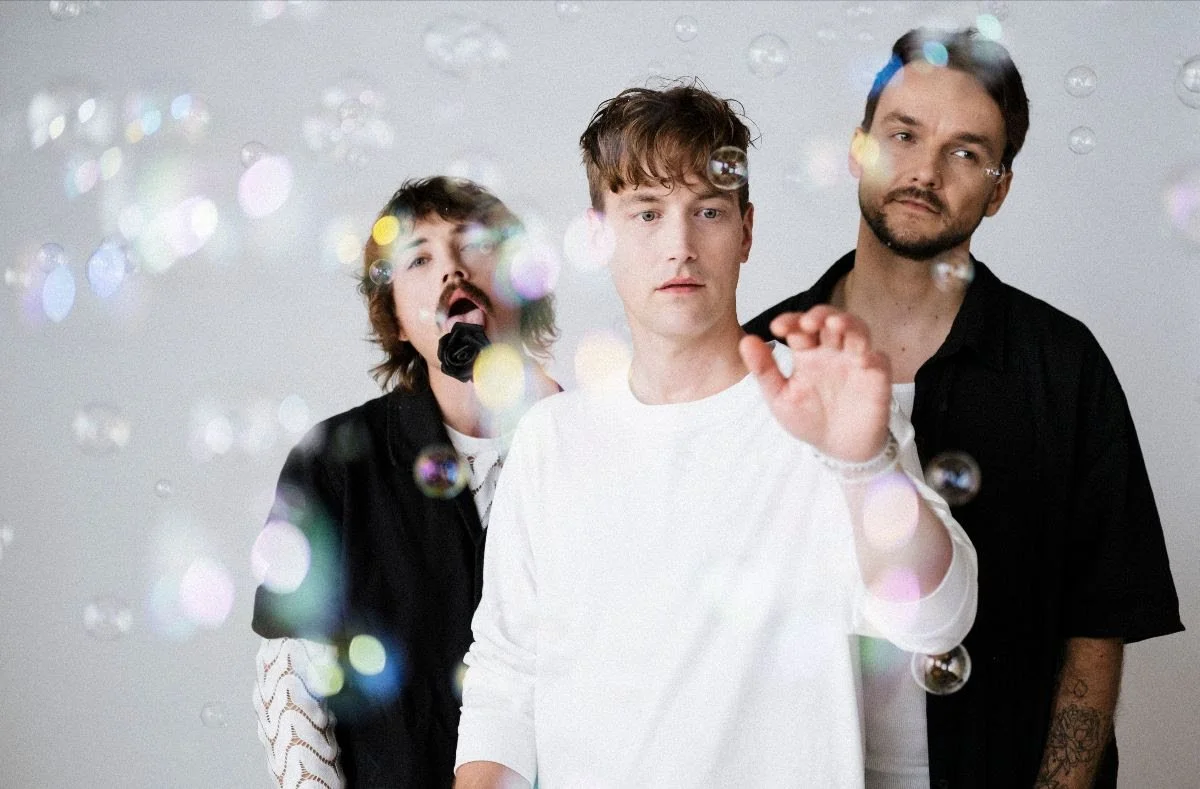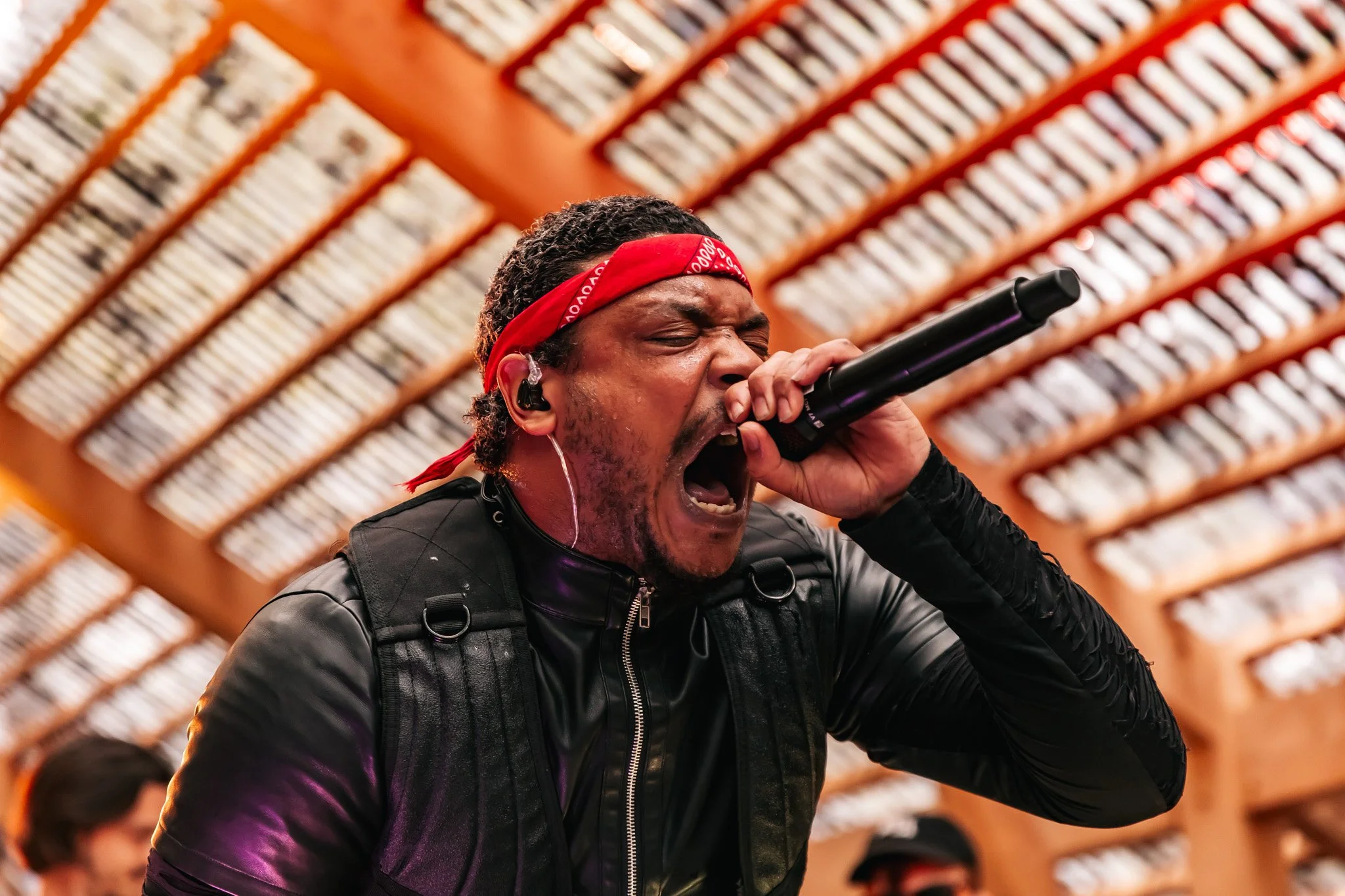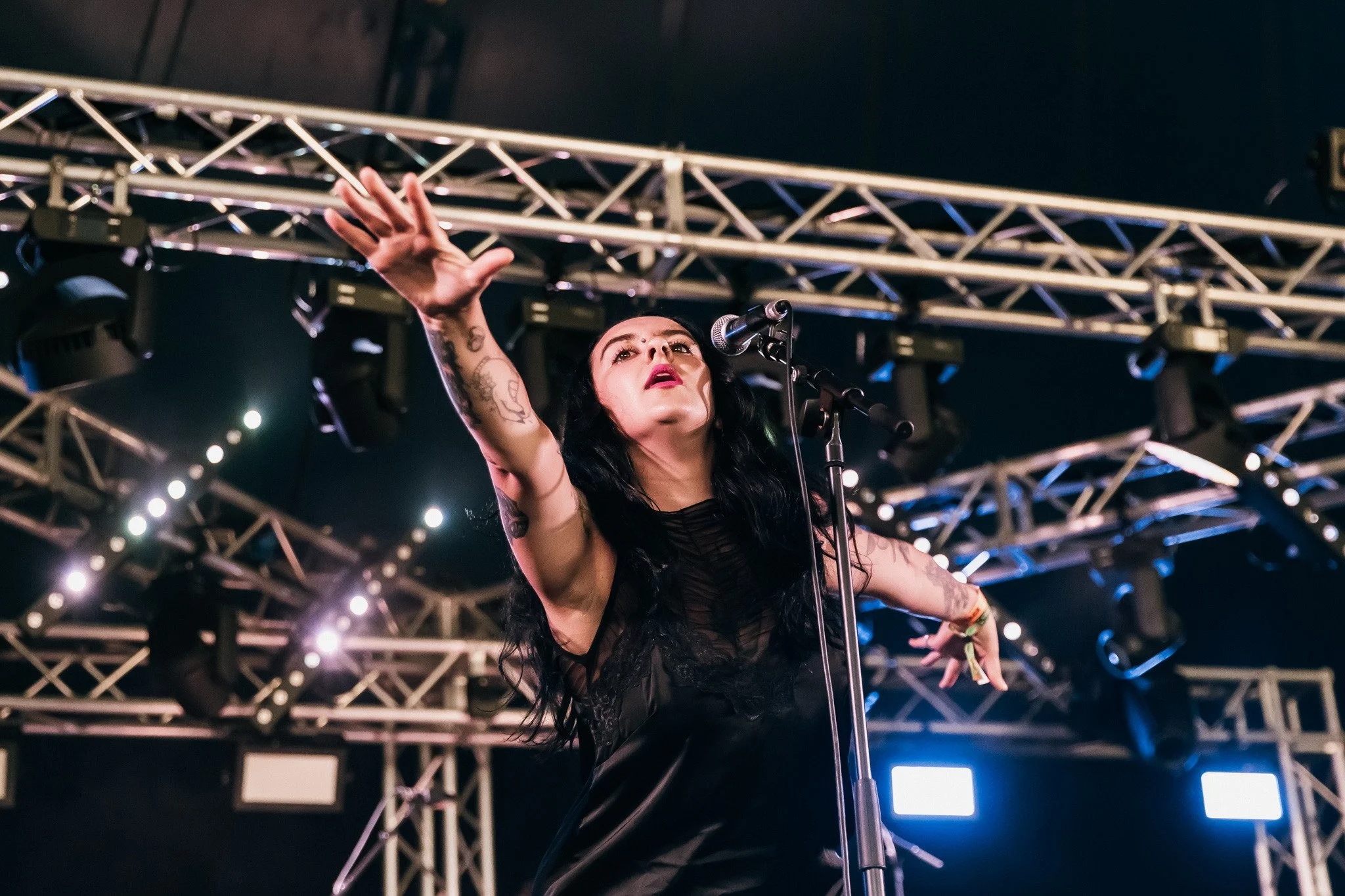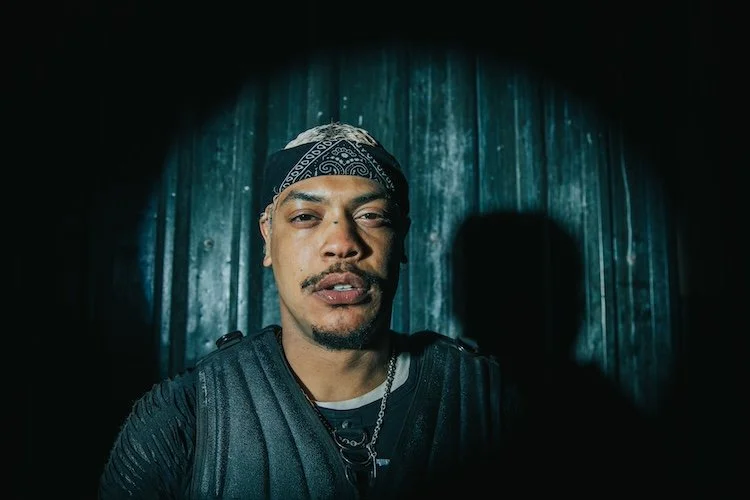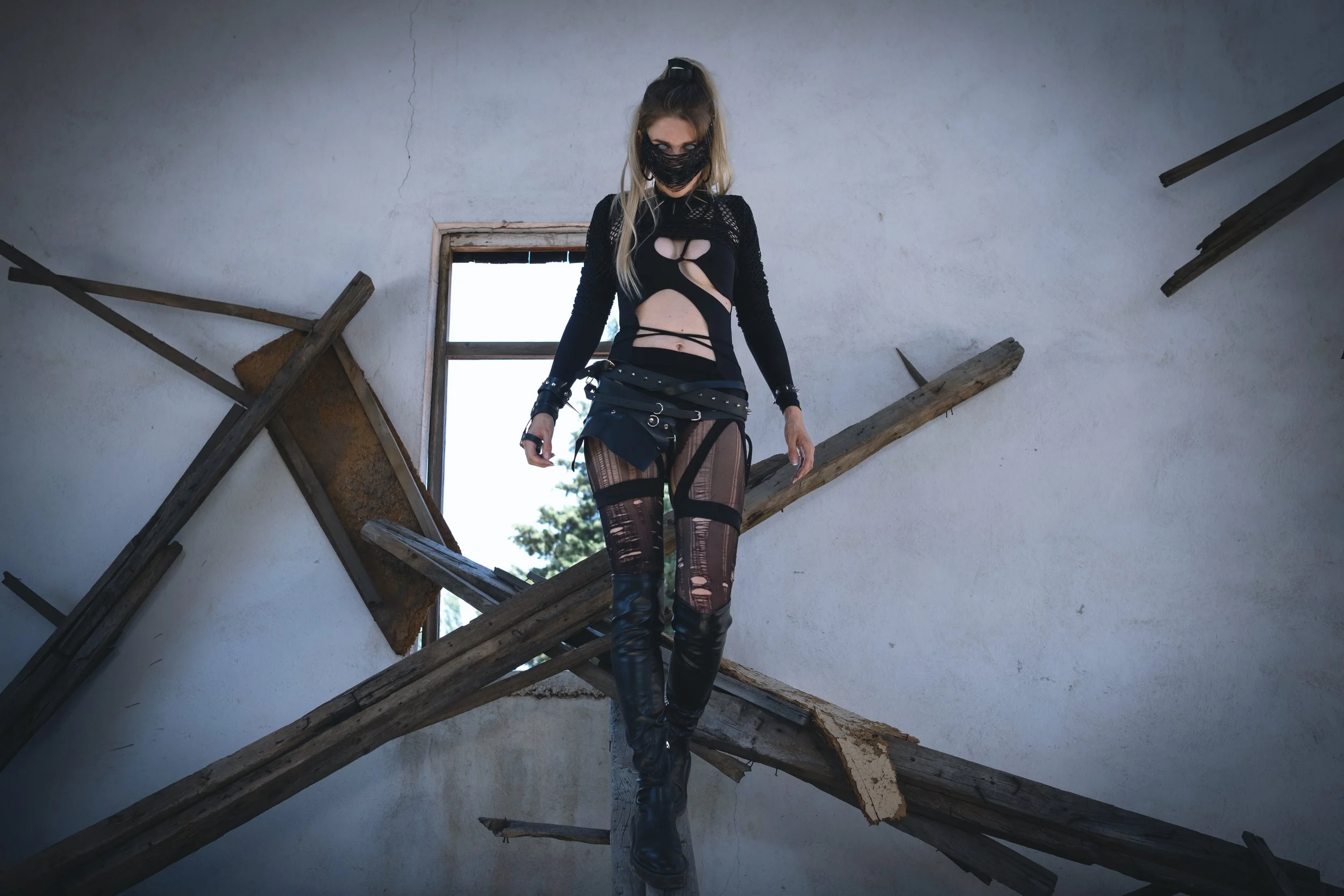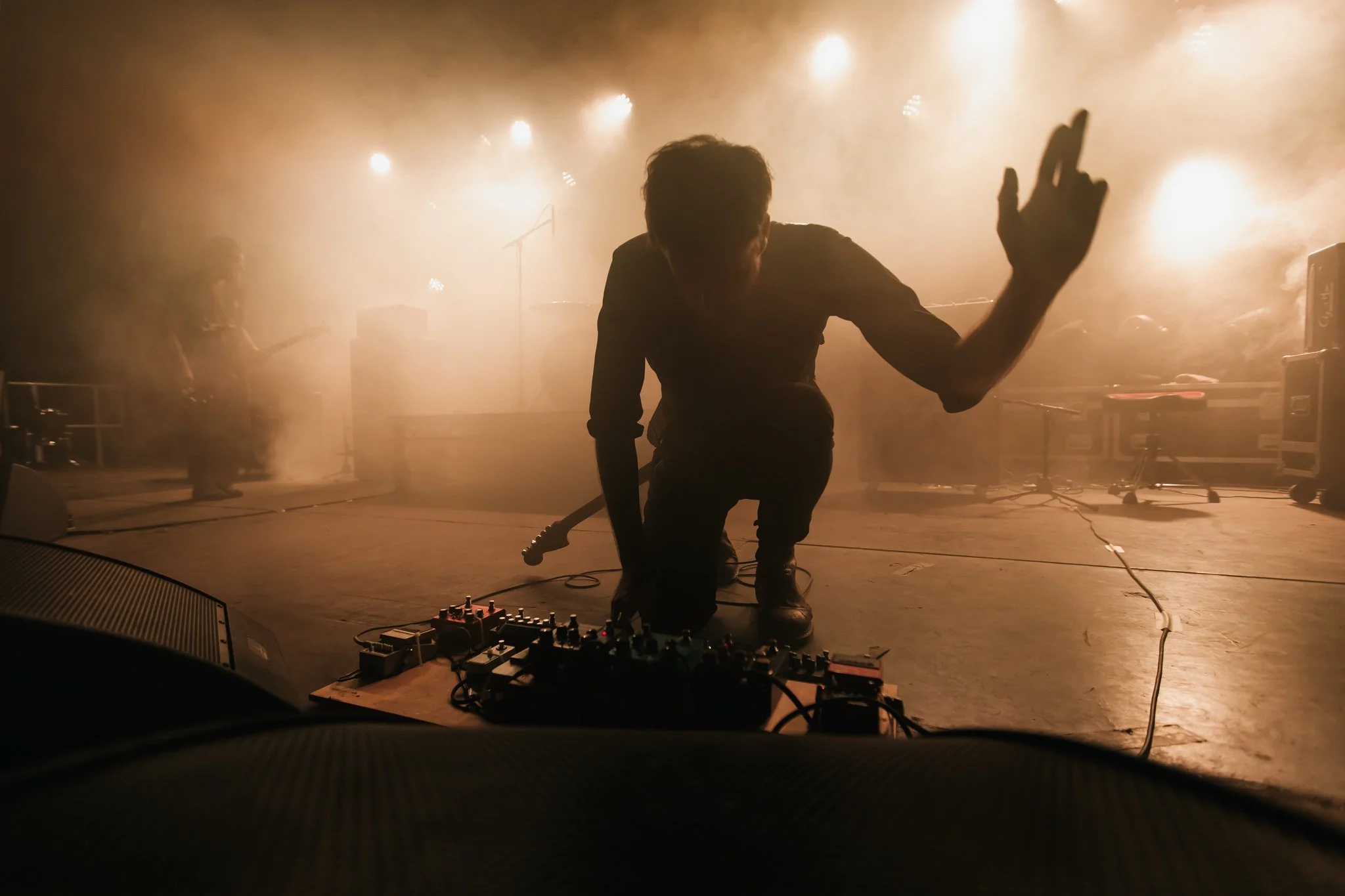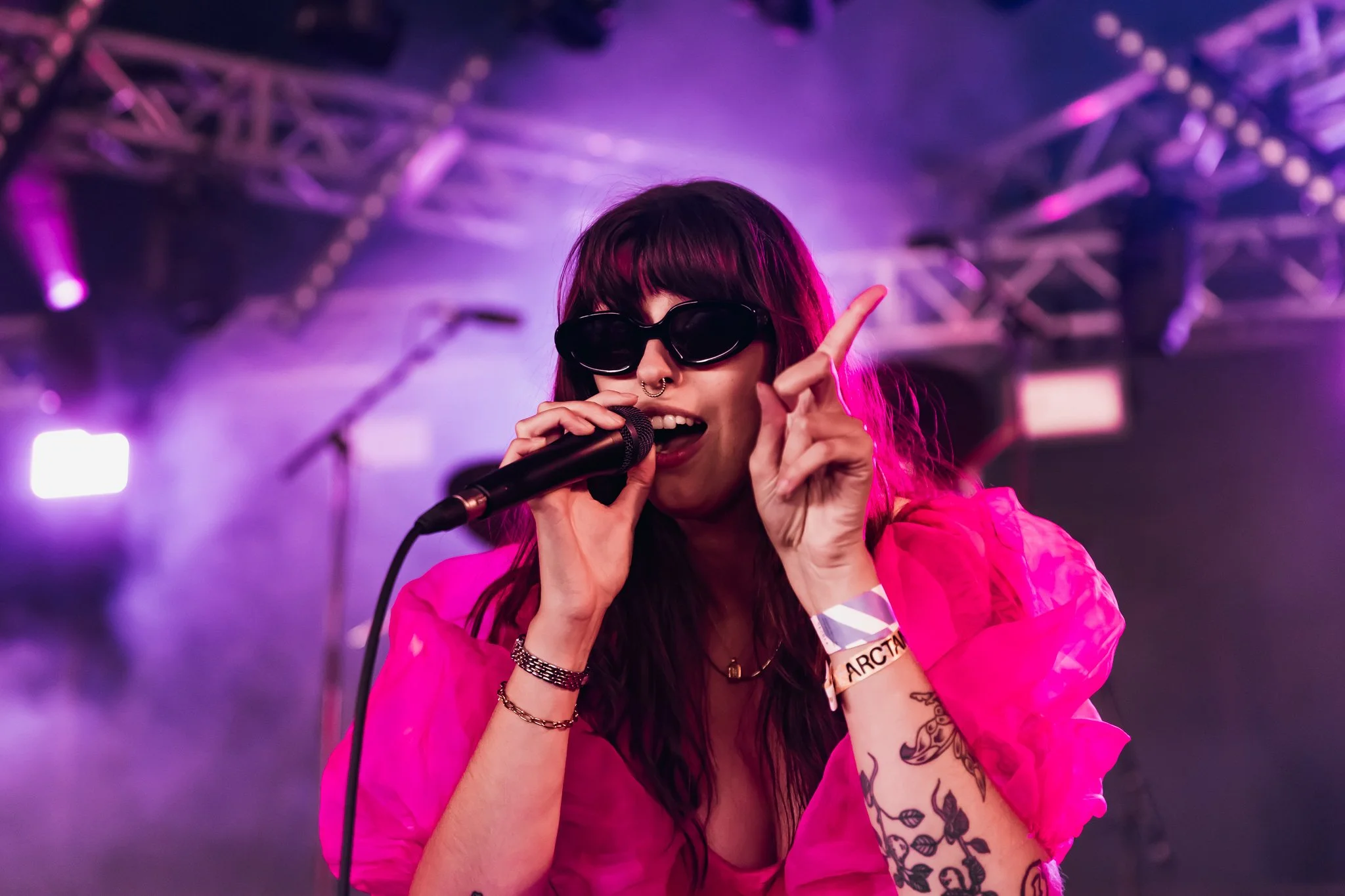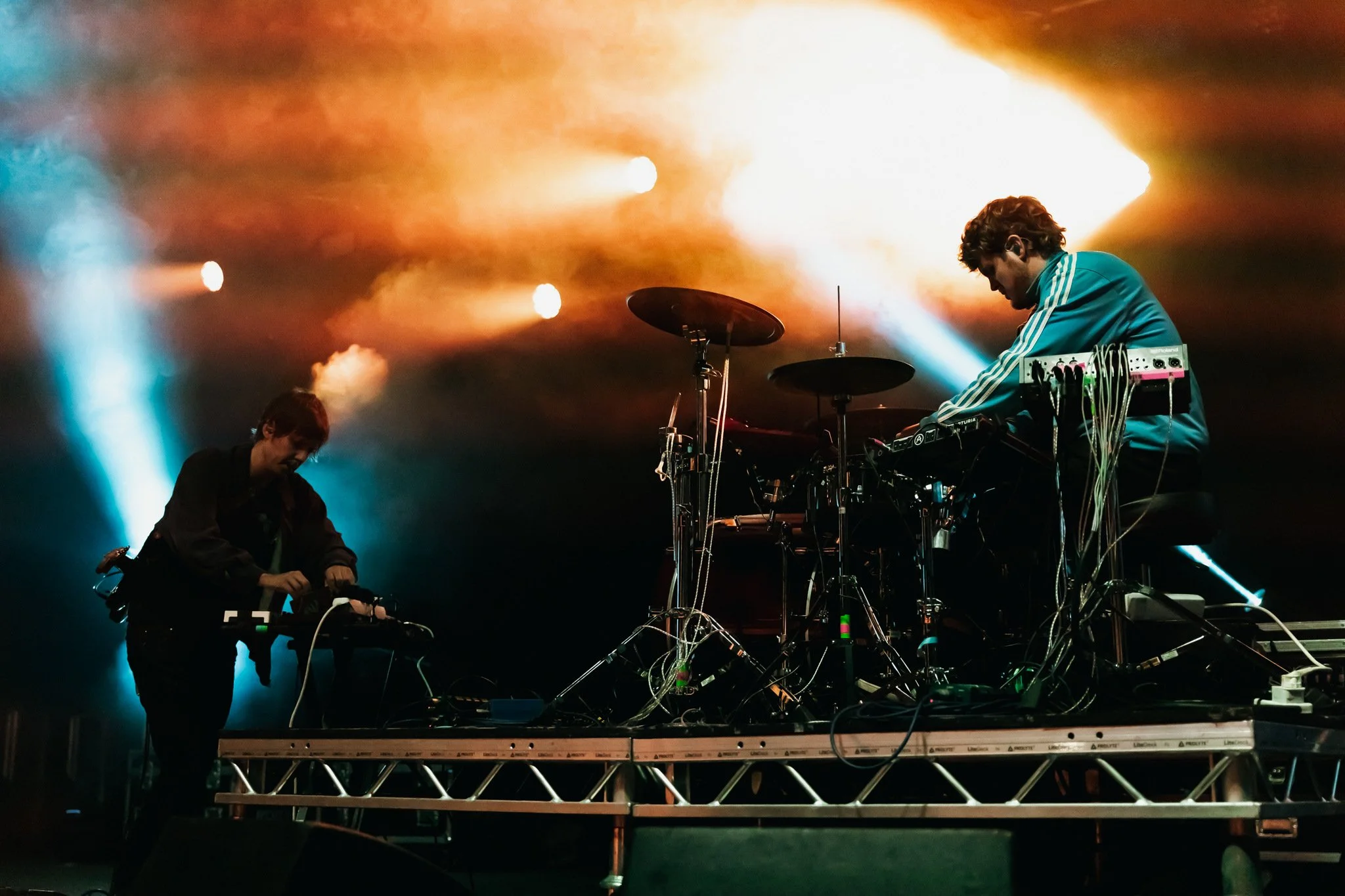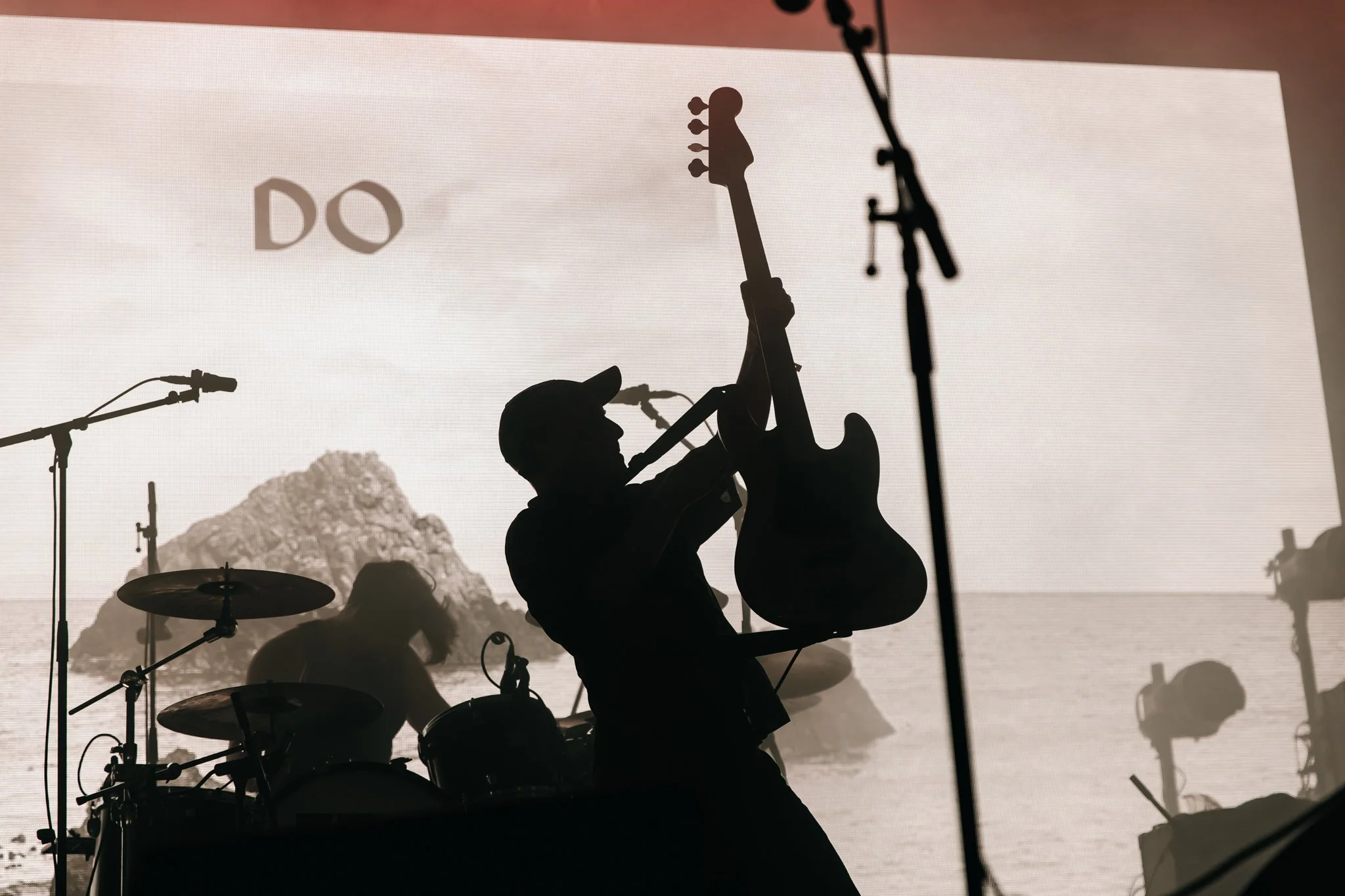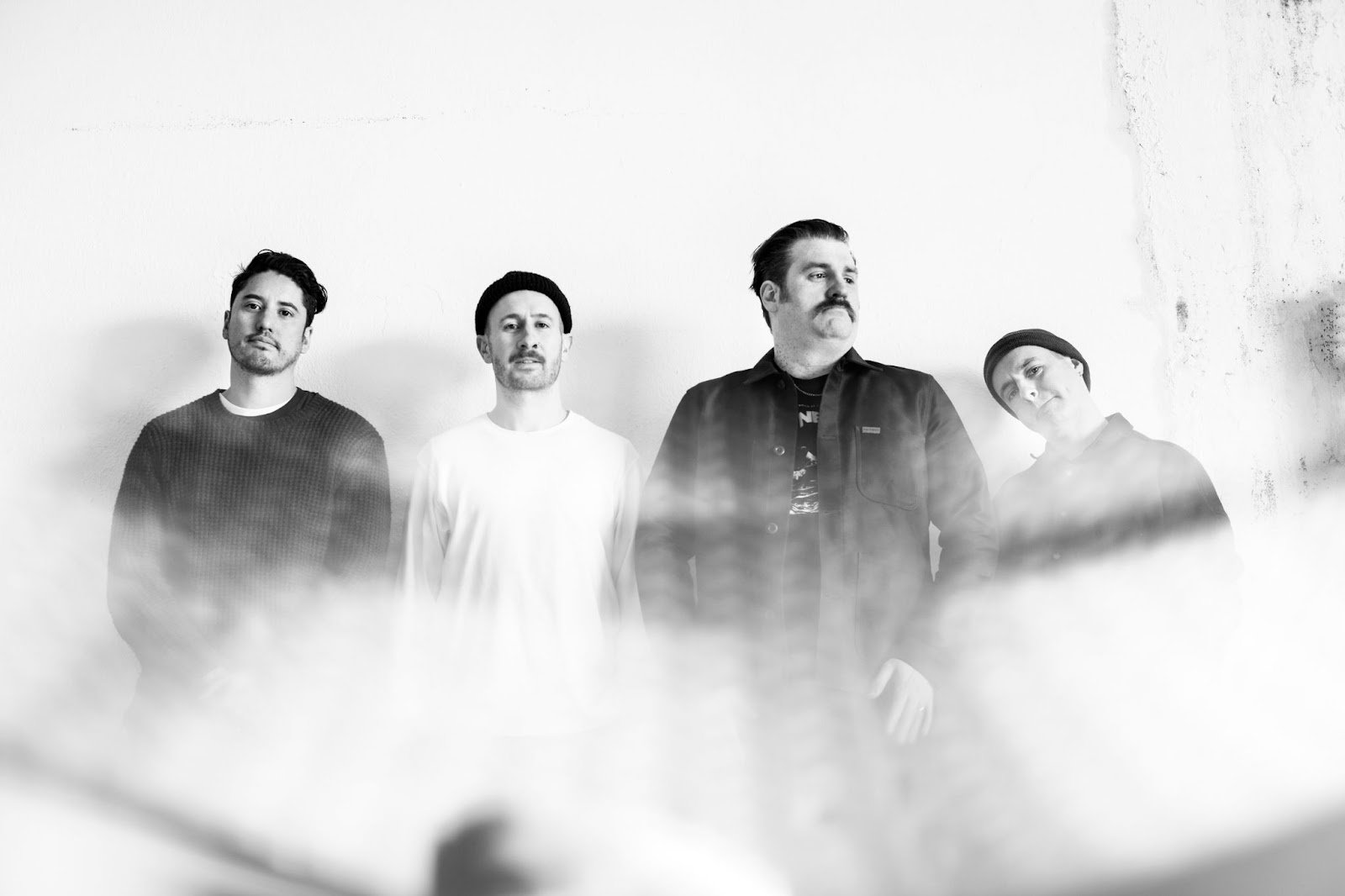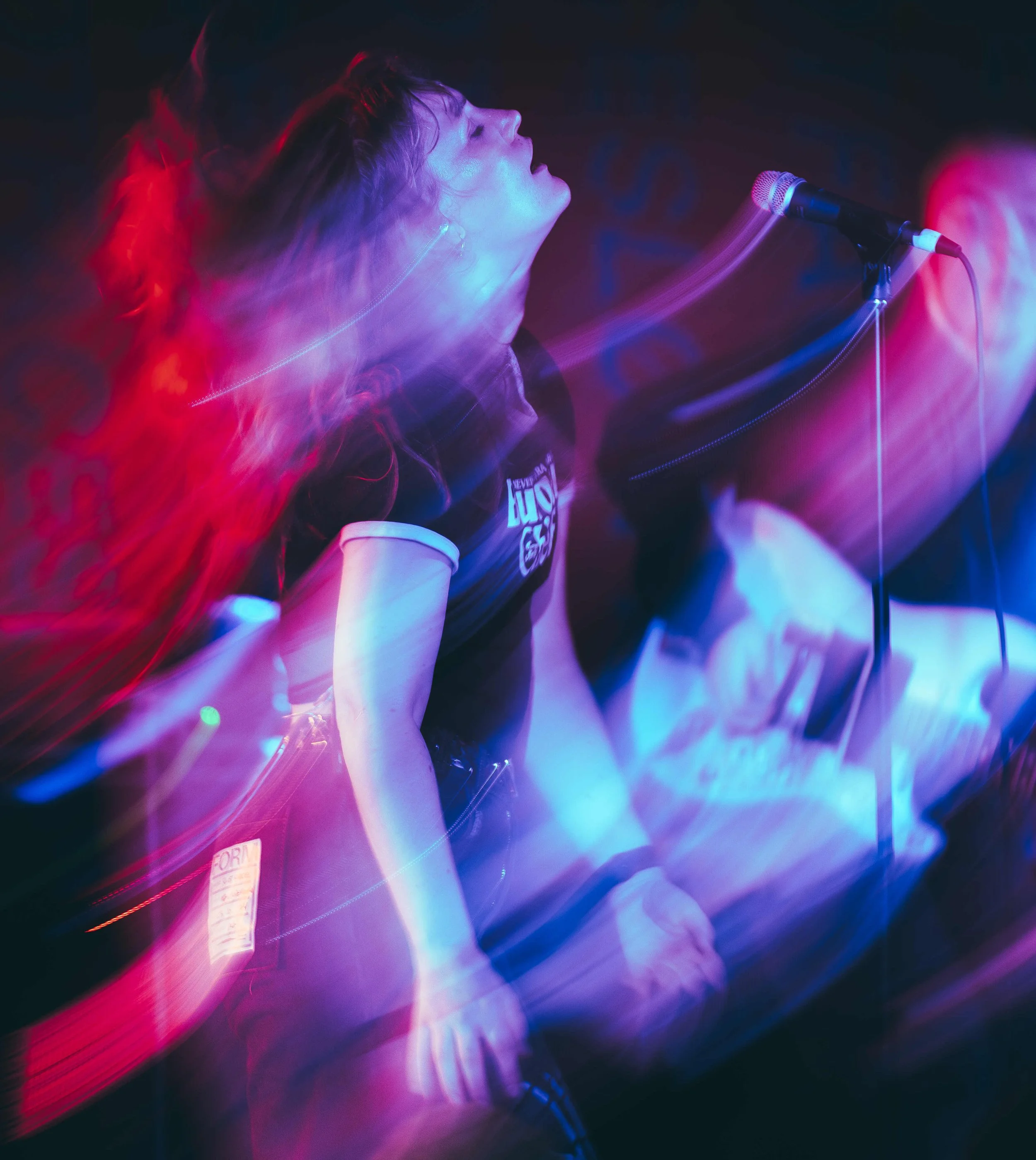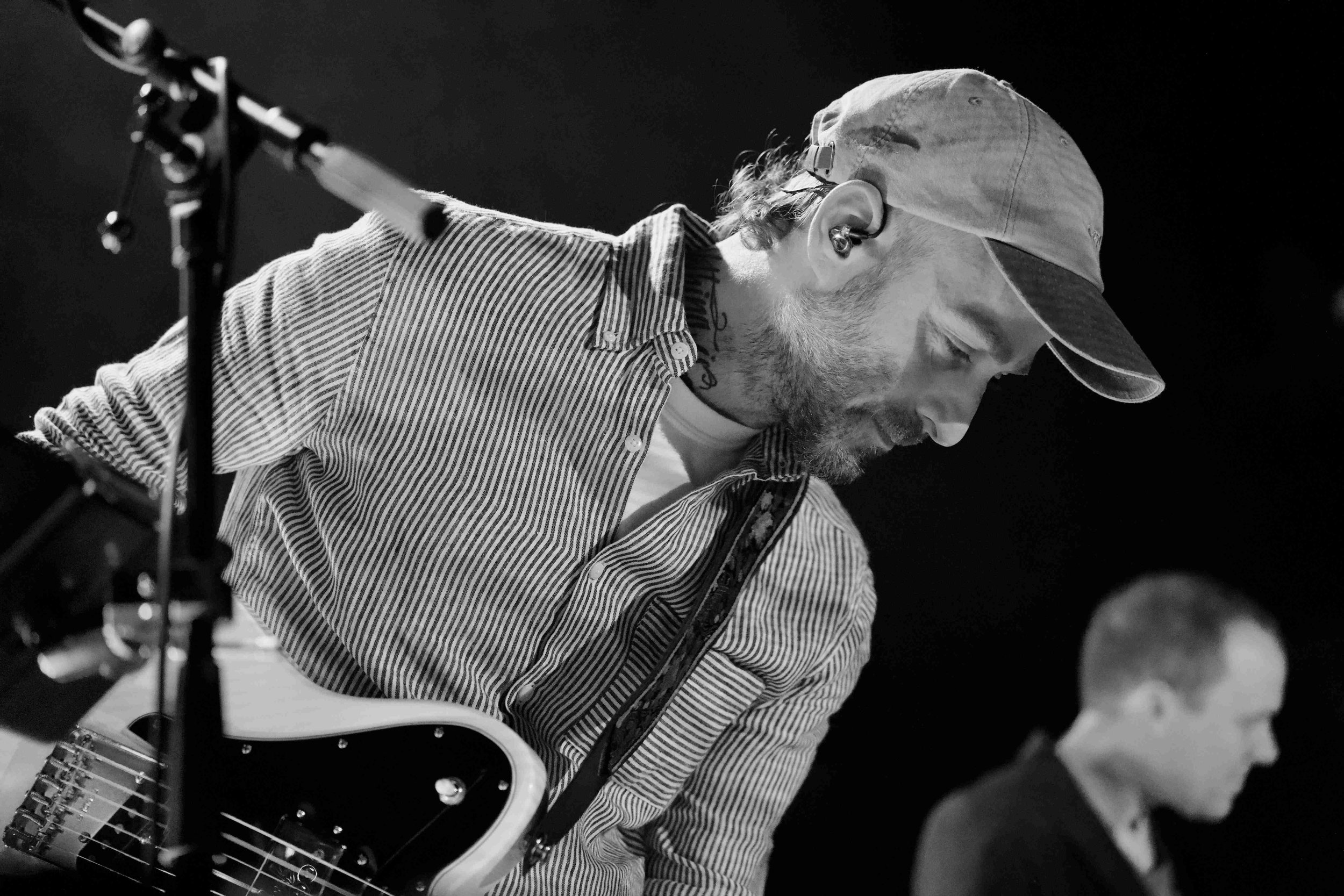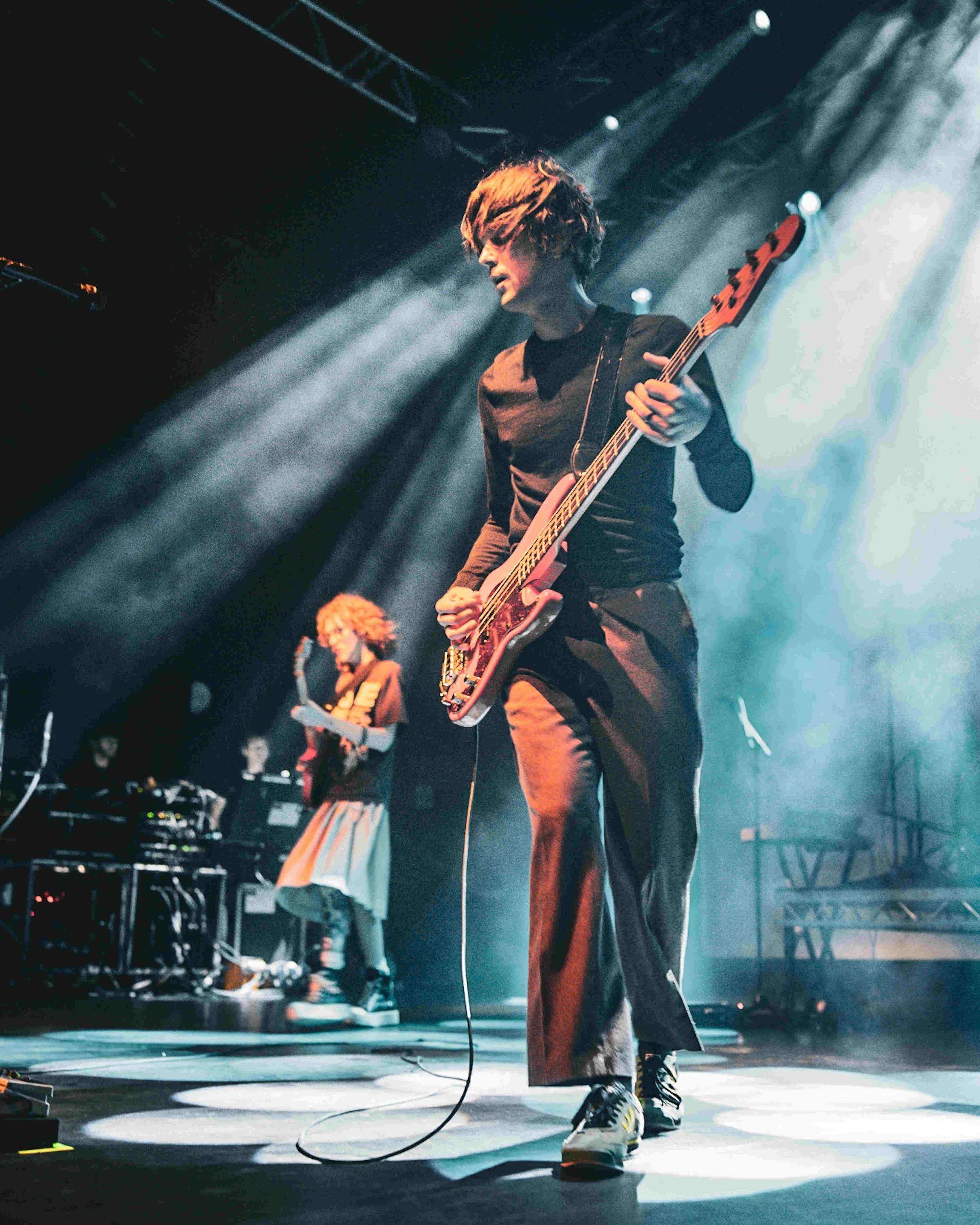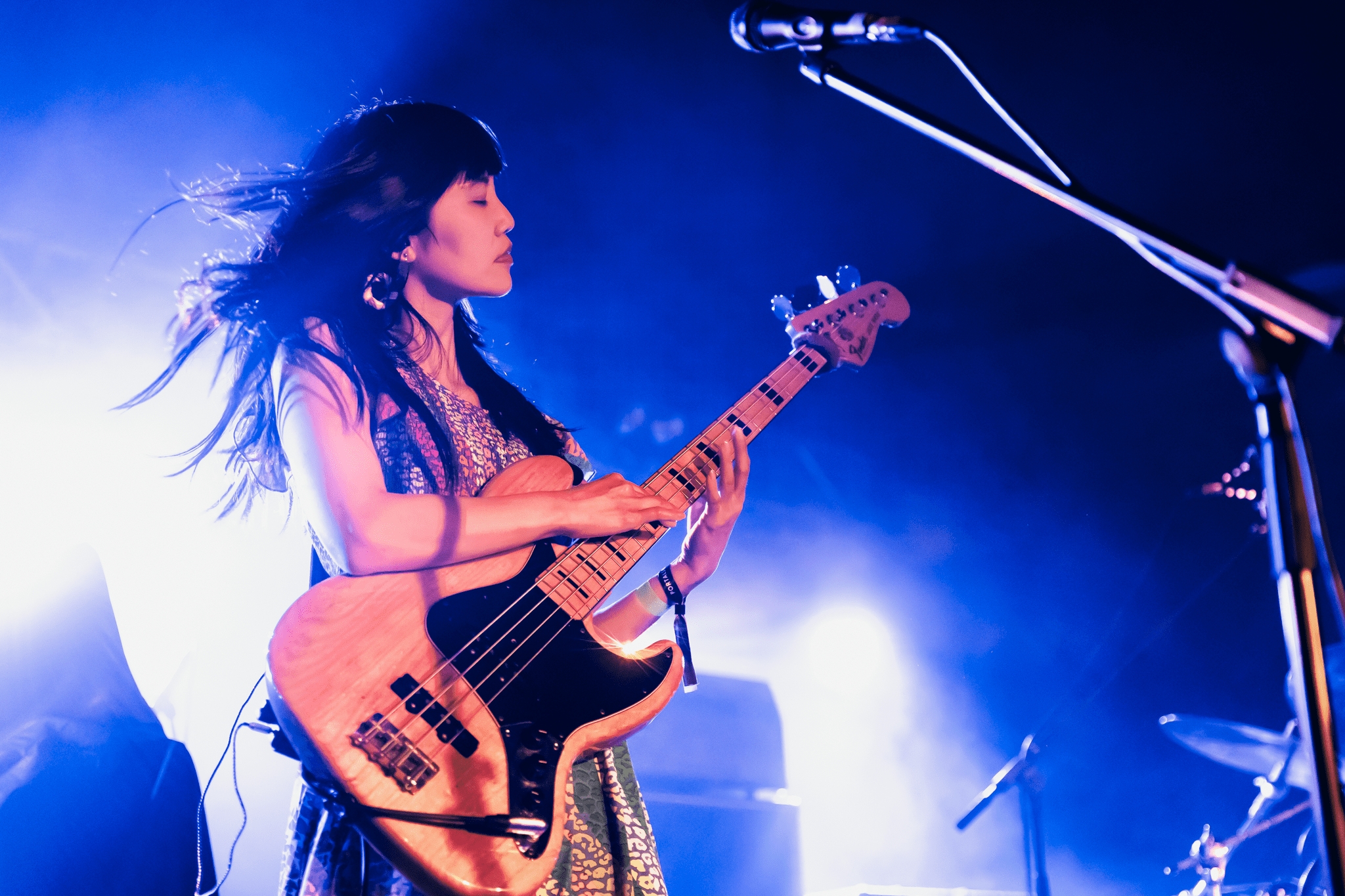Interview: Blackout Problems
Blackout Problems
German rockers Blackout Problems have been turning heads with their electrifying blend of rock and electronic music, tackling everything from personal struggles to pressing social issues. Known for their intense live shows and thought-provoking lyrics, the Munich-based quartet—Mario Radetzky, Marcus Schwarzbach, Moritz Hammrich, and Michael Dreilich—are capturing attention with their latest album, RIOT. Bursting with political and personal themes, RIOT balances heavy riffs and emotive melodies, all wrapped in the band's signature high-energy sound.
With their UK and European headline tour now underway, Blackout Problems are taking their new music on the road, performing RIOT in full alongside fan favourites from their growing discography. In this Q&A, the band shares their thoughts on the creative process behind the new album, what it’s been like to collaborate with artists like Lake Malice, and how they keep the energy alive night after night on tour.
Your latest single "Quicker Than Death" is a collaboration with Lake Malice. How did that partnership come about, and what was the creative process like?
After getting them on the bill for the RIOT tour, we thought it would be cool to release a song together beforehand and get to know each other while writing it. This way, we’d already have a connection before hitting the road.
You’re touring Europe and the UK this autumn with Lake Malice. What are you most looking forward to about this tour?
We’ve already played the first five shows, and it’s been a lovely lineup. We can’t wait to bring it to the UK. I’m really looking forward to those dates because we absolutely love touring there. I love the people who come to our shows, and even though we’re just starting to draw small crowds, it’s so much fun to play in a country with such a rich musical history.
The mix for "Quicker Than Death" was handled by Rou Reynolds of Enter Shikari. How did his input influence the final sound of the track?
First off, it’s amazing to have such a talented musician on board. Knowing that Rou would mix this track brought a positive side-effect—it pushed us to step up our game during production. He has a very creative approach to mixing and even added a few elements that made the track even more interesting. I haven’t experienced this type of mixing in a long time, as the mixers we usually work with don’t add any musical elements to the mix. I found this really refreshing. Rou is one of my favourite musicians, so it’s truly an honour to work with him.
"Quicker Than Death" blends your electro-rock sound with Lake Malice’s metal riffs. How do you approach balancing those diverse elements in a cohesive track?
To be honest, it was quite a challenge. We started by listening to a few Lake Malice demo tracks, and it was tough to blend our style with theirs since they were already pretty far along. We just started coming up with new ideas. We sent the track back and forth several times. Of course, there were some versions that didn’t work out because mixing our styles wasn’t easy at first. But in the end, I think the two different verses, the catchy and beautiful chorus, and the energetic middle part came together to create a great track that reflects both bands’ styles well. For us in Blackout Problems it’s a lot of fun to have such a banger in our set.
Your live shows are known for their intensity. How do you maintain that energy and connection with fans night after night on tour?
We try not to fall into too much routine, although some routines in the set aren't a bad thing since they help us get better and better at certain parts. After playing the first five shows, we’ve changed the setlist each night, which is a great way to keep things fresh and connect with the fans.
You’ve always incorporated electronic elements in your music. How has your approach to integrating technology and rock evolved over the years?
We’ve always been interested in evolving and developing both ourselves and our style. We’re still curious to see where this journey will lead us. Recently, we tried something completely new. We recorded a track without a fixed tempo, without using a click. We captured the energy of the full band playing live in the room, and then added the electronic parts afterward using 'smart tempo.' This means all the MIDI information adjusts to follow the natural ups and downs in the tempo we played.
How has Germany’s rock scene influenced your sound and identity as a band?
I’d say we’re 50% influenced by bands outside of Germany and 50% by German bands. The German influence is less about the music itself, but we’ve learned a lot from other German bands in terms of attitude and how to handle the business side of things. There aren’t many bands in Germany doing exactly what we do, so we don’t feel like we belong to any specific scene. We have a lot of friends and love many bands, but when it comes to genre and scenes, we’ve always felt like outsiders.
What message are you hoping to convey with the release of "Quicker Than Death"?
‘Quicker than Death’ is a love song about a relationship that has gone terribly wrong. It’s about a love that was meant to last forever but ends faster than you could have imagined—a relationship that was supposed to survive everything but maybe won’t. The line ‘I fell in love but you pushed me out of it’ is a good example of what I mean.
Your music often addresses dark, personal themes. How do you balance vulnerability with the drive to create energetic, empowering tracks?
We don’t really have a master plan. We only write songs when we have something to say. For me, as the band’s lyricist, it’s important that the lyrics resonate with me personally. It feels like cheating if I try to write something purely imagined—it always needs to have a background I can relate to. So whatever comes out, that’s the balance we have to live with. I’m often surprised by how much dark stuff comes out of me. But then again, the music has been feeling lighter these days, so there’s a balance between the lyrics and the music that empowers us.
The upcoming RIOT Tour is highly anticipated. How do you prepare for such an extensive tour physically and mentally?
We wish we had a bit more time to properly prepare for a tour like this. I’d love to have worked out beforehand but to be honest, we’ve only rehearsed a few times and focused on choosing the songs we want to play and how we want the stage to look.
With such a diverse catalogue, how do you choose your setlists? Do you favour older fan favourites or focus on newer material?
This is one of the hardest parts about touring for us. We’ve decided to focus more on new songs and our progress rather than on old favourites. That might change one day, but for now, we feel like this is the right direction.
You’ve worked with renowned producers. What’s been the most important lesson you’ve learned from these collaborations?
Always do what you love.
Your band has an ever-evolving sound. How do you approach experimenting with new styles without alienating your core fanbase?
I guess we made things pretty tough for some of our core fanbase in the beginning. But we always knew that Blackout Problems had to be free to try anything. I’ve always seen our band more as a pop band than a 'scene band,' since in pop, everything is allowed. Of course, we’re way too much for a typical pop band, but we want to keep the freedom to do whatever we want.
How do you keep the creative spark alive when you’re balancing touring, recording, and promotional activities all at once?
That’s tough, to say the least. It feels like you need to use two different parts of your brain for the business side and the songwriting side. One of the things I did was get two different laptops—one for the studio and one for day-to-day business. It helps me focus on the music by not having access to my emails while in the studio. We handle so much ourselves, from management and the label to producing the music and managing all the little daily tasks that take up time. It’s a lot, but it’s also a lot of fun.
Finally, what have you been listening to lately? Any artists, new or old, that are currently inspiring you?
To be honest, I haven’t been listening to much music lately. I’m shamelessly plugging a record I released on my label, Munich Warehouse, a while ago: Sights & Sounds – No Virtue. It’s the side project of Andrew Neufeld, the singer of Comeback Kid.
Riot by Blackout Problems is out now via Sony Music and available for streaming on all your favourite platforms.
